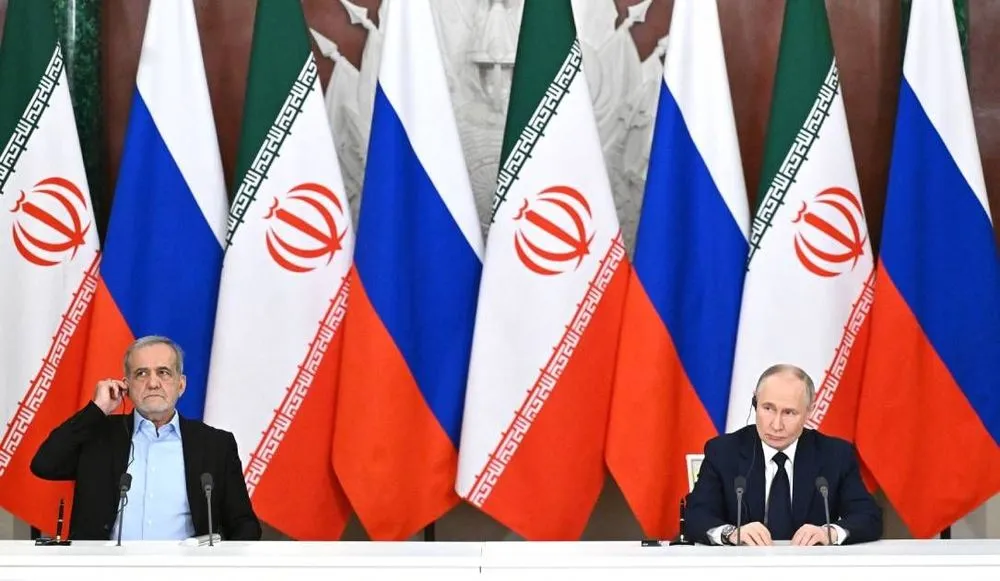Iran and Russia deepen cyber ties with new agreement
A deal signed last week between Iran and Russia includes commitments to deepen the countries’ military, security and technological ties.
The agreement between the world’s two most sanctioned nations aims to elevate “friendly interstate relations between the countries to a new level,” according to a statement from the Kremlin. Parts of the agreement specifically address cooperation in cybersecurity and internet regulation.
Russia has signed similar strategic treaties with China and North Korea in the past, agreeing to share expertise in information technology and digital development.
Signed last Friday in Moscow by Russian President Vladimir Putin and his Iranian counterpart Masoud Pezeshkian, the agreement stipulates the two countries will “expand cooperation in countering the use of information and communication technologies for criminal purposes.”
The countries also agreed to exchange expertise in managing national segments of the internet and to advocate for stronger control over the global digital space by creating rules for international tech companies.
The internet in both Russia and Iran is considered “not free” due to the prevalence of censorship, disinformation campaigns, surveillance, and punishments for online speech, according to a report by the human rights advocacy organization Freedom House.
For many years, Russia has attempted to disconnect from the global network to gain more control over the internet, and the Kremlin has recently ramped up these efforts by blocking apps and websites and testing the country’s so-called “sovereign internet” infrastructure.
Iran has also “taken steps to make access to the global internet more cumbersome and expensive, and drive users to a domestic version of the internet where authorities can more effectively control content and monitor users,” Freedom House said.
According to experts at the Carnegie Endowment think-tank, the deal imposes no direct obligations on either party and simply formalizes the close ties between Iran and Russia, as the security provisions in the 2025 treaty are almost identical to those in a 2021 agreement between the two countries.
That agreement, which came into force last August, focused on cooperation in the fields of cybersecurity and cybercrime prevention. They also agreed not to attack each other in cyberspace.
In 2023, Russia's digital ministry, along with major local tech companies — such as cybersecurity firms Rostelecom-Solar and Positive Technologies — met with Iran’s communications and technology ministry to discuss exporting Russian technology to Iran and collaborating on cybersecurity and telecommunications.
Last October, Russian information security company Positive Technologies, which was sanctioned by the U.S. in 2021, published a report analyzing the Iranian cyber threat landscape, an indication of cooperation between the firm and Tehran. According to the company, the research is based on its internal expertise and information “from authoritative sources.”
Last year, the spokesperson for Iran’s National Security Commission told local media in an interview that “Russia is contributing to the cybersecurity of Iran."
Daryna Antoniuk
is a reporter for Recorded Future News based in Ukraine. She writes about cybersecurity startups, cyberattacks in Eastern Europe and the state of the cyberwar between Ukraine and Russia. She previously was a tech reporter for Forbes Ukraine. Her work has also been published at Sifted, The Kyiv Independent and The Kyiv Post.



